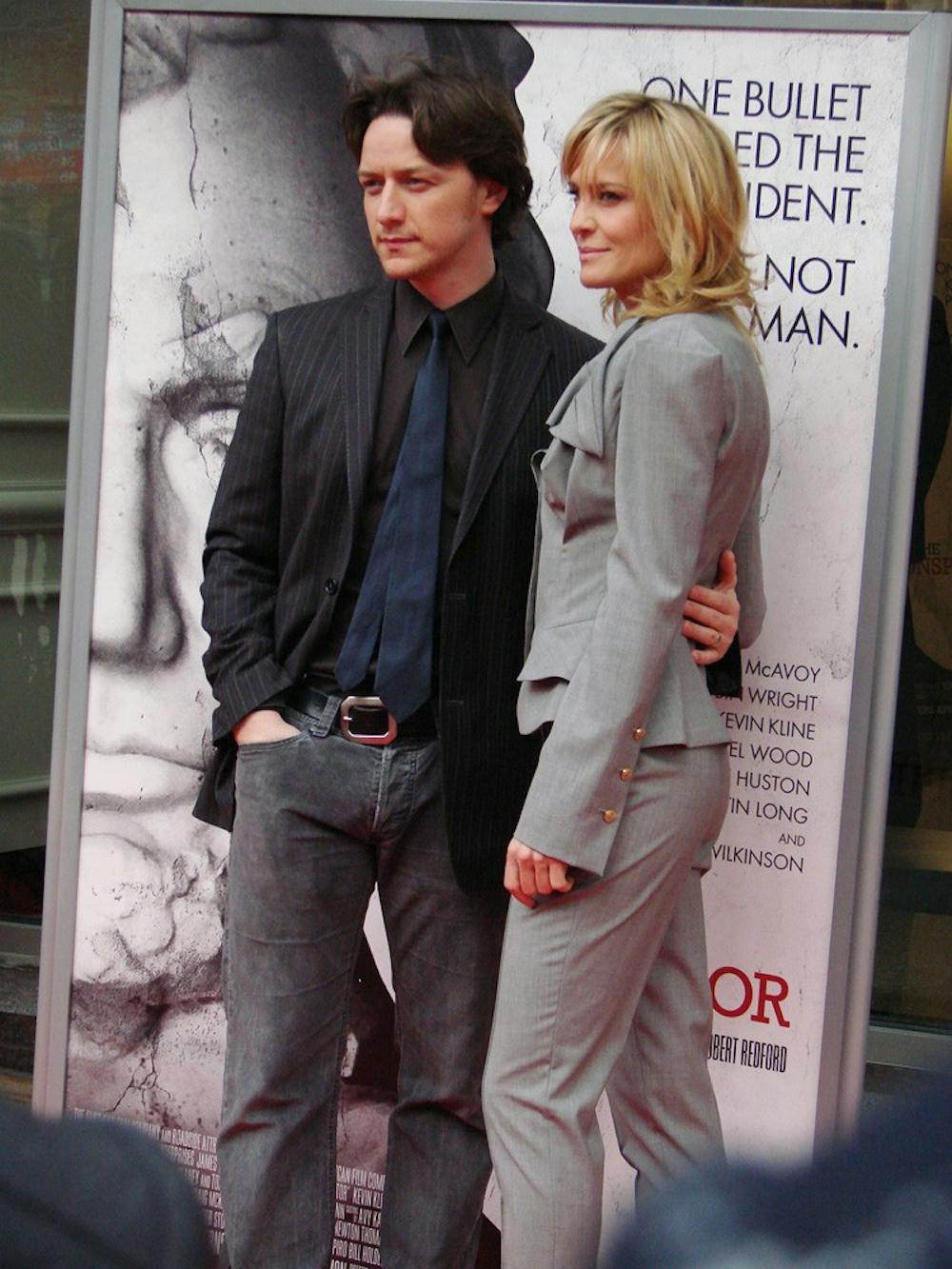B+ — 130 Minutes
As Arthur Miller wrote “The Crucible” as a historical allegory of McCarthyism, “The Conspirator” is a Civil War movie that clearly aims to draw a meaningful connection to the “war on terror.”
The film is set during the immediate aftermath of the Lincoln assassination, when a military tribunal has been set up by the federal government to try the alleged conspirators. “The Conspirator” tells the true story of Mary Surratt, played by Robin Wright, charged with taking part in the conspiracy to assassinate President Abraham Lincoln because she owned the boarding house where John Wilkes Booth and several others met to plan the crime. (For those who don’t know their history, we won’t give the ending away here.)
Defending her is the fresh-off-the-battlefield lawyer Frederick Aiken (James McAvoy), who reluctantly takes on the case at the behest of his boss. James McAvoy gives a commanding performance, deftly portraying the journey of a man who must come to the reluctant conclusion that what he knows and believes in may be wrong.
“My character starts to realize my client might be innocent, and he has to sort of choose between his country and the Constitution,” James McAvoy said in an interview with The Eagle.
From there, the movie unfolds as a classic courtroom drama, and a good one at that. It helps that there is such a great supporting cast, including the likes of Tom Wilkinson and Kevin Kline; but director Robert Redford is clearly focused on Aiken’s personal journey.
From the beautiful scenes of 19th century Washington, whether it be sweeping shots of the Mall or the dark, musty court room or the opening battlefield scene, what has to be “The Conspirator’s” greatest strength is communicating what it meant to be living in the aftermath of the U.S. Civil War.
“The American Film Company has such an incredible dedication to historical accuracy, and we wanted to make sure it was as accurate as possible,” said screenwriter James D. Solomon, who has been working on the script for nearly 18 years.
It doesn’t take too long before the message Redford is trying to send becomes obvious. As Aiken struggles against the dubious military trial of citizens and argues with Lincoln’s Secretary of War on how far a government should and can go to protect its citizens, the parallels to the “war on terror” and Guantanamo Bay become painstakingly clear. It can be pretty heavy-handed at times and mostly one-sided, so ultimately how well this works depends largely on one’s personal politics.
That being said, “The Conspirator” still ranks as one of Redford’s best. People who prefer action blockbusters may want to stay away, but this film is a must-see for history buffs and fans of courtroom drama.
Hoai-Tran Bui contributed to this report.
thescene@theeagleonline.com





